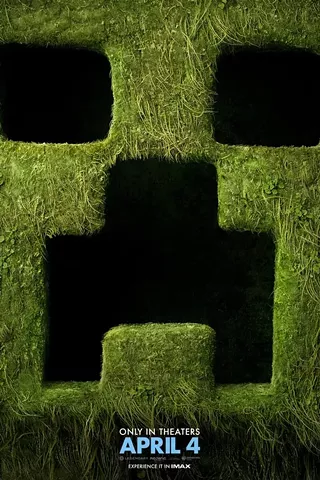And the philosophizing doesn't even have anything to do with the plot, which is pretty much unforgivable in a science fiction film. The best science fiction is fun because it asks large questions about the human experience, about the direction of the world, the nature of governance, or the possibility of a universal sense of good. And then it gives a sappy, simple-minded answer.
The best science fiction would, then, include such delights as This Island Earth, The Lathe of Heaven and Soylent Green. They're kicky little movies that get you thinking, and then shout "Hey, quit thinking!" at you. What makes those movies work is that the bumbling philosophizing is integrally wedded to the plot: It's not that there are a lot of people hanging around talking about soylent green, it's that soylent green is people. The stories ask the questions so that the characters don't have to.
But in Red Planet it's just the opposite: The chance for mining meaning from the story is blown, so the characters just spout off about God and such.
The movie starts aboard a spaceship wherein a group of six astronauts is heading to Mars to check up on a project to turn the red planet into a new home for humanity. It seems that people have been polluting the Earth for so long, and with such intensity, that it is on the verge of becoming unlivable, so they plan to move to Mars to see how long it will take to turn that planet into a trash heap.
OK, so there's the big question, right? Pollution, responsibility, the dangers of our disposable lifestyles. But that question is never really addressed; the characters mention that it's the purpose of the mission, and then pretty much forget about it.
Unfortunately, director Antony Hoffman knows that Big Questions are an important part of sci-fi. He just didn't realize that a plot was capable of asking them, so one of the astronauts, Dr. Bud Chantillas (Terence Stamp, who's seriously slumming here), has to deliver the following dialogue: "I used to believe science could do anything. Then, one day, it all changed. I gave up science for philosophy. I've been searching for God ever since."
Two things: Scientists are not named "Bud," and philosophers don't waste their time searching for God. Sure, I've seen some philosophers, after six or seven cheap Australian beers and a handful of Xanax, go out looking for God, but usually they find him in the pants of some comely undergraduate and then have to face a review board. So on the whole, the search for God is pretty much frowned upon in the academy.
Oddly, shortly after the astronauts finally finish the philosophizing and get down to crash-landing on Mars, the whole scene of Dr. Chantillas waxing theological is repeated as a flashback. I mean, it wasn't even pleasant the first time; why run it again? I would like to assure director Hoffman that, when the time comes for the special director's cut, he would be doing the four people who will purchase the video a big favor by cutting out at least one iteration of this scene.
Anyway, the five male astronauts hit the surface of Mars while the lone female astronaut (Carrie-Anne Moss) stays aboard the spaceship so that she can strip down to a see-through tank top. In a further stroke of cinematic genius, she also manages to take a low-gravity shower 10 minutes into the film. Of course, that scene is later replayed in flashback, just in case anyone's forgotten what her butt looks like.
Down on the planet (the red one) the astronauts get all philosophical and start killing each other and getting eaten by Martian insects and fighting with their own navigation robot. See, the navigation robot has two settings, "navigation" and "perfect killing machine," and somebody flipped the wrong switch. Seriously. Why anyone would include a "perfect killing machine" option on a navigation robot is beyond me, but, based on what I've seen in Red Planet, it's a bad idea.
The rest of Red Planet is basically a slasher movie, with the astronauts getting picked off one by one as they stray from the group. This plot is really just indicative of the fact that no one actually makes science fiction movies anymore, they just make horror films or westerns or action/adventure films and set them in outer space so they can increase the special-effects budget.
Sure, science fiction should be fun, but it should also be about ideas. Just pasting a theological monologue on top of a bunch of explosions is hardly a substitute for that.
Red Planet is showing at Century Park (620-0750), Century El Con (202-3343), Century Gateway (792-9000) and Foothills (742-6174).









